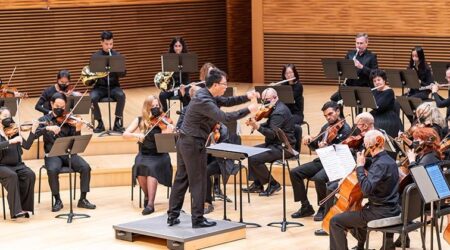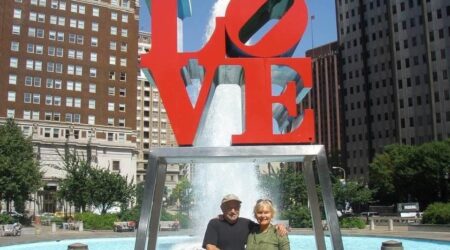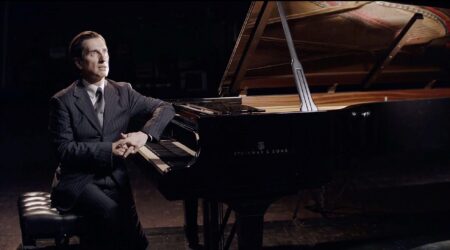Israel Never Stops Moving
I let myself be talked out of going to Israel so many times when I was a teenager, because there was always something going on there, always some trouble brewing, and always an easier option available. This year, as I was reaching the point of aging out of the Birthright program, I decided to stop […]
I let myself be talked out of going to Israel so many times when I was a teenager, because there was always something going on there, always some trouble brewing, and always an easier option available. This year, as I was reaching the point of aging out of the Birthright program, I decided to stop putting it off any longer and took the trip I’d been waiting for since I was thirteen.
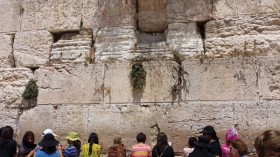
The country is small – I had no delusions about that. But it was only when I visited all of Israel’s boundaries that I really appreciated just what “small” means. It took us only a few hours to go from the lush greenery of the north to the beautiful, wild desert, to ancient Jerusalem, or to the lively beach. In that way, Israel reminded me of California, if California were much smaller and constantly under threat of destruction by Mexico, Arizona, Nevada, and Oregon.
As we hiked over various hills and trails, we’d occasionally stop to hear not about the local wildlife, but about which kings from Biblical times fought here. See those caves? Jewish resistance fighters hid there from a king so long ago that it makes your head hurt. That is, before the king’s soldiers rappelled down the mountain and attacked. Battles and plots and glorious resistance movements play out on the quiet, golden hills as you hear, in the distance, the IDF guns being fired in training.
Before we climb down part of the same mountain, while we’re staring at the drop, an Orthodox Jewish woman in a long skirt with her hair delicately tied up in a scarf finishes her climb up and, laughing at our frightened expressions, assures us that if she could do it, we could too. I’d like to say I felt like a warrior climbing down what felt like the steepest, most horrifying climb of my life, but my friend’s GoPro camera would tell you another story, one riddled with my threats of, ‘‘Oh lord, we’re all going to die,’’ and ‘‘Don’t tell my mother.’’ How that sweet Orthodox woman did it in a skirt, I’ll never know.
On a different hike, the memories of battles fought were a little less distant, the scars still visible in the shape of deep bullet holes on rocks and bunkers. Our tour guide warned us not to wander off the path and with an almost casual tone added, “Some of these areas are still mined.”
We looked at the border with Syria and smirked at the obvious difference – where the green ended, there Syria began. We traveled to a farm just miles away from the Egyptian border where, despite what feels like a veritable international industry of hatred and anti-Semitism, I couldn’t imagine even a single negative thought being aimed at a place as warm and beautiful as this.
From a hilltop in Sderot, we saw the skyline of Gaza City and began to appreciate how it would feel if Daly City started firing rockets at San Francisco. From Gaza City, our gaze wandered a little to the right, where the Israeli power plants that supply Gaza with free electricity stand, also (impractical) targets for rockets.
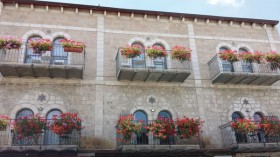
A lot of people told me I was going to cry. They warned me exactly when, where, and under what circumstances that would happen. Maybe I’m not as predictable as they’d thought, because one of the places I felt most emotional was in the middle of the Machane Yehuda market in Jerusalem. It’s a wonderfully lively place, sprawling and full of stalls that sells mountains of candy, spices, clothing, and whatever else you might desire. It’s both cramped and expansive, with a crowd that seems to swirl and twist like smoke. As we walked through, a rabbi stopped to give us Shabbat candles, since this was a Friday afternoon and we clearly had the faces of people who would not be equipped to deal such a basic though important aspect of Judaism.
Two young men who looked like the sort of guys you might find playing their guitars at a bonfire in college nonchalantly walked through carrying a human-sized loaf of challah on a gurney. Little boys in yarmulkes ran through the crowd past Orthodox men in solemn black suits as the elderly picked out fresh fruits to take home. A little band was walking by playing the flute and drums. Everyone felt the exciting hurry of finishing their shopping in time for Shabbat.
Maybe it was seeing this cross-section of Jewish life, or maybe it was the fact that these people could walk around being as Jewish as they liked and feeling perfectly normal, or maybe it was just the reminder that Judaism isn’t just something somber and ancient, but something living and breathing, capable of celebrating and mourning. And so, something there of all places, tugged at those dusty heartstrings of mine.
Many people that I’d spoken to before my trip told me about Jerusalem. All of them described it as something outside of this world, a place with a tangible magic. I’d nod along as they described a city both ancient and holy, a city where you tread in the footsteps of people who made the world what it is. I’d nod along, understanding but never quite knowing the feeling.
I must have expected the feeling to be immediate and overwhelming, because I almost didn’t notice it creeping in, since we drove into Jerusalem at night and went directly to the hotel. I almost didn’t notice the feeling the next morning either, when, on the way to the Old City, we passed more bullet-ridden walls that served as reminders of the war of 1967 and the significance of Jerusalem and the Temple Mount finally coming home.
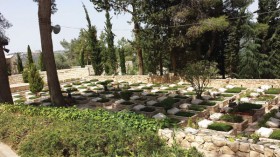
But oh, the feeling came. It came when looking at the Mount of Olives, like an old man – wise but sad and broken, the place where Jesus once stood and made prophecies and where it’s said that the dead will be resurrected when the Messiah comes. The feeling came when walking the narrow streets and claustrophobic markets. But most of all, the feeling came at the Western Wall–the closest place to the Temple Mount–a place of unfathomable yearning and pride, a place that wasn’t accessible to Jews for so long, you could almost feel the generations before you reaching out to touch it through your hands.
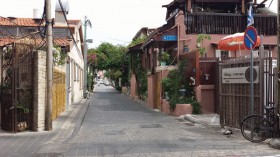
But unlike some of the other historic cities out there (if you consider medieval cities “historic” after a visit to the Holy City), Jerusalem doesn’t feel trapped in a romanticized past. Regular, modern people lead regular, modern lives outside of the Old City, riding the light rail, enjoying a picnic in the park on a sunny day, and breakdancing with yarmulkes on on a Saturday night.
For all its history, Israel is a country with its eyes on the future. Innovation comes in every field, whether it’s new farming techniques that keep fruits bug-free without pesticides, or a water system that makes the tiny desert country consider exporting water to other countries. Hey, it’s not called the “Start Up Nation” for nothing. To me, this is most evident in Tel Aviv, where you can wander through romantic neighborhoods full of low, Mediterranean-style buildings and then look up to see towering skyscrapers in the background. With beaches and a vibe reminiscent of Miami (without that feeling of glory days long gone), Tel Aviv feels like it’s young, energetic, and busy doing something great.
It seems like staying still isn’t an option for Israel, like if they stop moving they risk having too much time to dwell on every tragedy and heartbreak they’ve endured so far. Not that it ever seems far from memory. Major nightlife areas have armed and uniformed soldiers patrolling. The entrances to many nightclubs, bars, and malls – especially in Tel Aviv and Jerusalem – have people at the entrance with metal detectors, checking persons and purses. The entrance to Ben Gurion airport in Tel Aviv has security checkpoints for miles before, with another few checkpoints at every stage of your check-in at the airport. And only a quick visit to the Mount Herzl cemetery will reveal why these checkpoints exist.
Gravestones laid like pillows on beds of bright green grass mark the final resting places of everyone from former Prime Ministers Golda Meir and Yitzhak Rabin, to the youngest soldier that died fighting for Israel’s independence (an 11 year-old boy who tricked people into thinking he was older). As we stroll through a place that seems too beautiful to be so sad, maintained with care and full of vibrant blooming flowers and lush trees, we come upon a group of boys, skinny and barely out of high school, dressed in their army uniforms, silent tears streaming unabashedly down their faces as they sit together in the shade by a grave, their arms around each other in support.
Although this trip ends like many others, with a suitcase of memories, a thousand photos, and the joy of coming home, I do not feel like I am leaving a place to check off my world map and say, Yes, I’ve been there! Instead, it feels like the first glances of love, when you begin to feel that the person you’re with could be really special. And even though you’re apart now, you just have this feeling that you’ll meet again.
Tatiana Sundeyeva has gotten into the terrible habit of thinking too much about everything. She enjoys fantasizing about traveling, compulsively buying literature, laughing at her own puns, and consuming anything (and everything) that can be found in a bakery. She is a graduate of UC Berkeley where she got a degree in English with a minor in Italian. She can be found celebrating awesome female friendships on LadyBromance.com.
by Tatiana Sundeyeva


